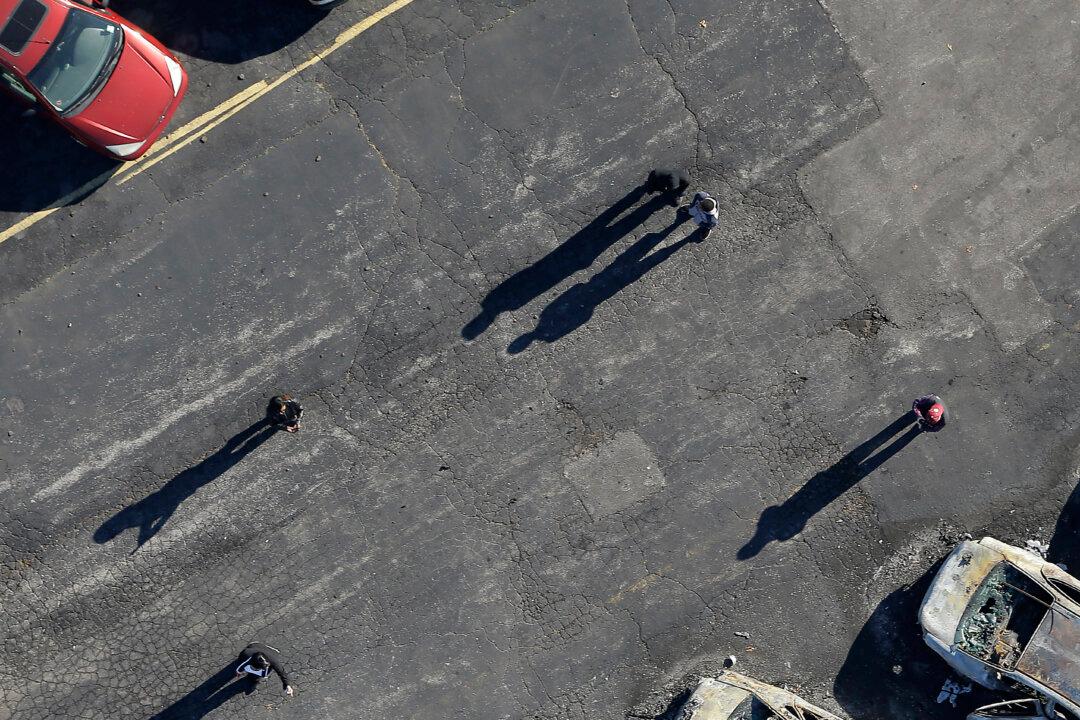JEFFERSON CITY, Mo.—Not much is normal about the Missouri grand jury responsible for deciding whether to charge a suburban St. Louis police officer for fatally shooting Michael Brown.
Not the length of deliberations, not the manner in which it has heard evidence, not the way in which its work could be made public. Then again, the case itself is unusual.
Ferguson Police Officer Darren Wilson, who is white, shot the black unarmed 18-year-old shortly after noon on Aug. 9 in the center of a street, after some sort of scuffle occurred between them. As Brown’s body lay there for hours, an angry crowd gathered. Riots and looting occurred the next night. In the following days, police responded with tear gas and smoke canisters as some protesters threw rocks and Molotov cocktails.
The Associated Press spoke with a veteran prosecutor and criminal defense attorney in Missouri about the typical grand jury process — and the ways the Brown case is far from the norm.
Extra Time
At the time of Brown’s shooting, a St. Louis County grand jury already had been hearing cases and was scheduled to disband Sept. 10. In one of the first indications that Brown’s case would be different, a judge extended the jurors’ service until January, the maximum amount of time allowed.
Whereas a typical case might be presented to a grand jury in a single day, this case has stretched over three months.
No Specific Charge
It’s fairly common in Missouri for a prosecutor to first file a complaint charging an individual with a crime, then go later to a grand jury asking it to indict the person for that offense. In this case, St. Louis County Prosecutor Bob McCulloch hasn’t publicly suggested any particular charge against Wilson.
Numerous Witnesses
Often, a grand jury hears testimony from just one or a few people, such as police investigators who summarize physical evidence and statements they’ve gathered from witnesses. In this case, McCulloch has said “all witnesses with any relevant evidence” were being summoned to testify.



